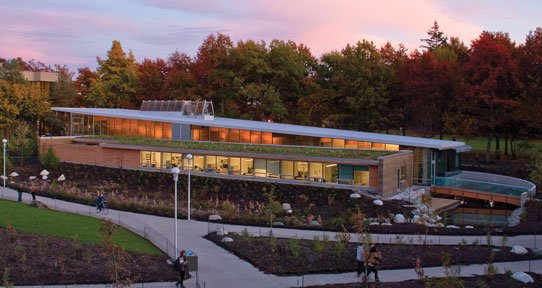This summer, I’m enrolled in the last instructional class for the Masters of Community Development program at the University of Victoria. In addition to that, my cohort and I finally got a chance to experience the summer residency that we should have experienced all along, had it not been for COVID-19 and the lockdowns in 2020.
On the first day of the residency, we attended an Indigenous Cultural Acumen Training (ICAT) workshop which was presented in the main meeting room of the gorgeous First People’s House on campus. Our facilitator was a Cree man named Clint Kuzio and I really appreciated how kind he was in answering the questions we had about how to work with the Indigenous (First Nations, Métis, and Inuit) peoples of Canada. I can’t speak for the other attendees, but I was humbled by the presentation and workshop.
One of the things Clint mentioned to us is that whenever a settler scholar such as myself wants to respectfully ask Indigenous peoples for information about themselves, the way to begin building that research relationship is to introduce yourself and mention who your grandmothers are. This is done so that the people you’re meeting know who you are, where your roots are from, and which ancestral spirits helped informed who you are as a person. It’s a neat concept and one that I’m happy to incorporate into my life.
Except, I don’t think I have ever really known who my grandparents were.
My mother’s mother died before I was born, and I never learned enough Tagalog to speak fluently with my father’s mother. She knew English, of course, but I only remember in some amount of detail one conversation we had. It was in the morning and I was leaving my parents’ house to walk to school across the street. Grandma and Adey (Grandpa) had been staying with us for a while before they were going to fly to the Midwest to live with my Tita Feli. By the time I got home from school, they’d be in Illinois, so I had to say my goodbyes to Grandma that morning. I don’t remember too much about what she said to me, but I do remember crying a lot and promising her that I’d be a good daughter to my parents. I don’t think I ever saw them again for a very long period of time.
Knowing that I’ll be speaking to more Indigenous family and community service groups this week, I thought that I should find out more about who my parents’ grandmothers were, so I wrote to my parents and asked. The responses I got were more about my mom and dad’s grandfathers; yet, I think that there is enough information for me to craft a thoughtful acknowledgement of where I come from:
My name is Trisha, and I am a recent settler to this beautiful land known in the Western world as British Columbia, Canada. My parents immigrated from the Philippines in the 1970s, where they both had originally lived on the island of Luzon. My mother’s maternal grandmother was Eleuteria, and my father’s grandmothers were Mamerta and Maria. They and my other grandparents worked hard all their lives to provide for their families, even going as far as to uproot the family when they felt it was necessary for their own safety. I honor their sacrifices by being here today, learning how to help make the world safer for the future generations of people to come.
If you had to introduce yourself and your work to a group of Indigenous people, what would you say? Who are your parents’ grandparents?
